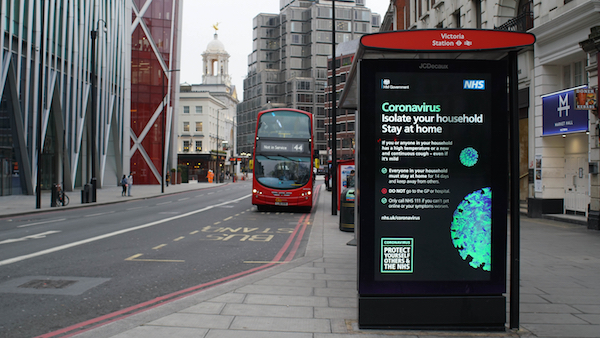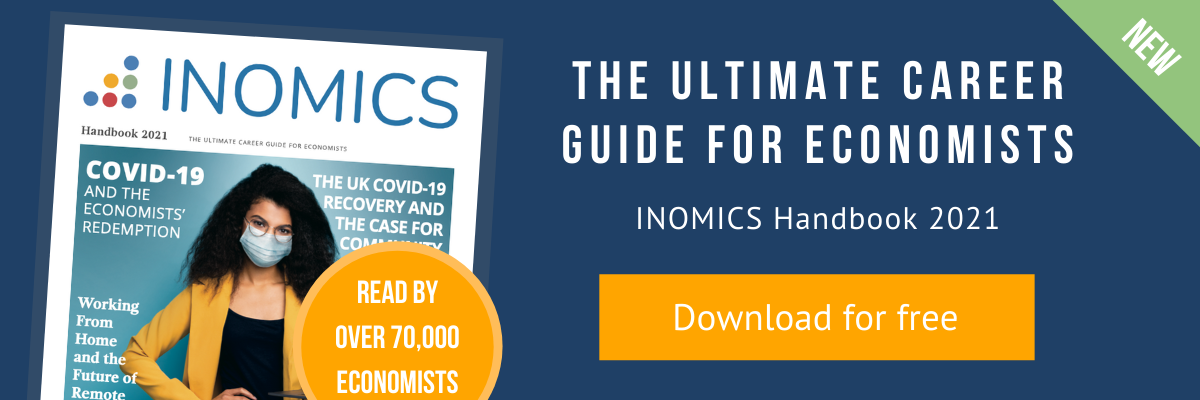
Post-COVID Britain
The Case for Community Wealth Building
Read a summary using the INOMICS AI tool
'The greatest science policy failure for a generation’ is how the editor of The Lancet, Richard Horton, described the UK’s COVID response last June. It was a widely shared sentiment – made credible by the UK having one of the highest death rates in the western world. Fast forward to the present, and the government has finally claimed a ‘much needed win’ – a big one, too. Its vaccination programme has been rolled out with remarkable swiftness, and the country’s vulnerable populations are well on their way to inoculation. Commentators of every stripe have taken note.
Talk has begun of loosening the restrictions, and the route out of the wreckage is clearer by the day. With this in mind, and looking to our future, we must ask ourselves where our priorities lie? The post-COVID world is yet to be built – and we need to get planning.
Placing community at the center
When things are threatened, it’s natural to consider what we hold dear, what we would fight to protect. And like many previous crises, COVID-19 has reasserted the importance of community: the sense of collective belonging, shared purpose. In responding to the pandemic, it was local workers that kept society running, stacking shelves, delivering food, caring for the elderly; and it was from local spaces that mutual-aid networks emerged, filling the gaps left by inadequate government intervention. In the words of the National Organisation for Local Economies (CLES): ‘the emergency has underscored the centrality of community to our everyday lives’.
At the same time, the crisis has also reminded us how much we undermine it. Decades of deindustrialisation, outsourcing, and austerity have helped erode community bonds, with local economies manufacturing little but inequality and precarious, often underpaid, work. And things are now worsening. As COVID-induced recession hits, thousands of businesses face bankruptcy, threatening countless jobs, and private equity firms hover like vultures, salivating at the prospect of picking up local firms on the cheap. UK highstreets, so often the focal point around which communities coalesce, are teetering on the brink of extinction, nothing but fast food chains and automated casinos to fill their empty fronts. For those prepared to fight to protect their communities, the time has come.
Despite looking like an overwhelming task, the cause is not without hope. Polling shows that just 6% of Brits want a return of the pre-COVID economy, clearing the way for a new economic path - one that prioritises local livelihoods over big business, long-term prosperity over short term profits, and seeks the restoration of community. It’s time to make the case for community wealth building.
Introducing...
Community wealth building (CWB) is an approach to economic development. Described by the think tank, Collaborative Democracy (CD), as a ‘systemic, place-based alternative to the ‘no-placeness’ of extractive, corporate capitalism’, it reimagines local economies as owned by, and operating in the service of, the community - especially those most marginalized. By broadening ownership over capital and anchoring jobs locally, it seeks to ensure local economic stability and stem the flow of capital flight. For those sceptical, its potential has already been glimpsed, with CWB principles underpinning the so-called ‘Preston Model’, a program of development that’s helped revive the wider Lancashire area. Now, though, as lockdowns continue to expose the injustices of our economic model, it should be taken from the fringes to the fore - amid the current chaos its relevance has never been greater.
Democratising the economy
CWB is best understood by an exploration of the five principles, or ‘pillars’, upon which it rests. The first is the democratisation of the economy through the establishment of worker-owned initiatives. ‘Cooperative businesses stabilize communities’ explains economist, Jessica Gordon Nembhard, ‘because they… distribute, recycle, and multiply local expertise and capital within a community’. By centering members’ interests over the profit motive, cooperatives prioritise job security, the maintenance of affordable prices, and operate in the service of community wellbeing.
Research from the International Labour Organisation (ILO) has also shown that cooperatives - and other democratically run enterprises - are also far more resilient in the face of economic crisis - and have been throughout history. From the German agricultural depression of the 1860s, to the Great Recession of 2008, they have consistently outperformed investor-owned businesses in protecting employee interests, and riding out the hard times - we now need more of them.
It shouldn’t be too difficult either. Local authority business support can easily be re-channelled towards locally-owned, socially-minded ventures, while future bailouts, of which there will be many, can be made contingent on the diversification of ownership. Given the increase in poverty, unemployment, and inequality the government should put particular focus on supporting cooperatives in everyday economic sectors like food, care and utilities, to ensure their continued affordability.
 Financial power
Financial power
While championing worker-owned businesses is a worthy goal, without access to credit the expansion in this area will be stymied. Indeed, access to credit has long been an issue for small and medium-sized enterprises (SMEs), regardless of ownership. Between 2009-19 lending to SMEs dropped by over 40 percent, despite their number increasing by almost a third, and insolvency rates have rocketed. Now, in COVID-induced recession, financial flows to SMEs are constricting further, for the combined losses of revenue, capital expenditure and productive output have been enormous.
In addition to better state support, regional investment banks - an essential plank of the CWB - must be considered. Through targeted lending, prioritising unionised cooperatives operating in the local area, these banks are well-placed to finance the growth of local economies, which commercial banks, put off by their small scale, have little interest in. Local authority pension funds should also chip in, redirecting investment away from global markets into local schemes. Together, these initiatives can recirculate wealth that already exists in the community - a multiplier effect in action.
Anchor purchasing
This can be further enhanced by what CLES describes as the ‘progressive procurement of goods and services’. With the commercial economy tanking, public sector spending is increasingly important as a means of stimulating supply and satisfying demand - especially that of ‘anchor’ institutions. As Professor Arthur Burris has observed, such institutions - namely schools, universities, hospitals, and others deemed ‘unmovable’ - ‘generate billions… in economic activity every year, and yet very few regional development strategies attempt to harness their untapped economic power – buying, hiring, investing, etc. – for the service of the local population.’ Their power is on the rise, too, for education and health are areas that, despite the tumults of the global economy, continue to grow at a rapid pace.
CWB corrects this oversight, channeling anchor institutions’ purchasing toward local businesses that are more likely to employ low-income, lower-skilled workers - think a hospital catering contract only open to worker-owned enterprises based within 10 miles. And the effects can be huge. Anchors purchase such large quantities of goods and services, that if just a small portion of that procurement were concentrated locally, substantial numbers of local jobs could be created, preventing capital flight - just when it’s most needed.
The labour market and its discontents
But it’s not just jobs that are needed, it’s good jobs, with good conditions and good pay - an increasing rarity in modern-day Britain. In the UK, in-work poverty reached 12.7% in 2020, according to UN statistics, and the austerity-withered safety net is increasingly porous. The CWB approach recognises this cannot continue, and again uses anchor institutions to combat it. Anchors are aptly positioned to address the systemic dysfunction in local labour markets through their purchasing, which can be made contingent on firms guaranteeing terms and conditions, like the living wage and protection of workers rights, that ensure a dignified standard of living.
With a wave of redundancies inevitable following the winding down of the Furlough Scheme, restoration of the welfare system must accompany these changes, and the case for a Universal Basic Income, temporary or otherwise, should also be taken seriously. Trade unions, too, must be re-empowered, and consulted throughout the recovery process - for the market has proven itself an inadequate arbiter.
Land and property
The last of CWB’s principles centers on land, property, and their respective uses. And like the above, COVID has heightened its relevance. Circuit breaker lockdowns have provided a stark reminder of the inequity with which society has allocated land and property. As inner-city families were ordered not to leave their cramped, overpriced flats, thousands of townhouses and pent-house apartments stood empty - by April 2020, at the height of nationwide lockdown, it was estimated that 250,000 people had left London to stay in second homes elsewhere.
As a counterweight, CWB advocates the extension of the ‘commons’ (land held in perpetuity for the public good) wherever possible, leveraging the size and wealth of anchors to that end. As significant landowners, anchors have huge asset portfolios, the under-utilized parts of which can be transferred into community control through vehicles like Community Land Trusts, ensuring any financial or social gain may be distributed among the community. Exponents of CWB also seek to take advantage of falling property prices, proposing local authorities purchase land, while appropriating derelict or unused property - all to be kept under the commons. These assets can then be lent to cooperatives and social businesses in need of office space or infrastructure - creating a feedback loop of local wealth creation.
One part of a larger project
While comprehensive, community wealth building is no panacea - society’s problems are too numerous. Rather, it must be thought of as the local part of a broader overhaul, one part of a program of transformation that includes a green new deal, an industrial strategy fit for the digital age, a rehabilitated welfare system, and which also tackles the housing crisis. Although this may sound a tall order, let’s not forget we stand, like never before, at a crossroads - and all roads remain open. The economic chaos created by COVID may be our best chance to trade in our old economic system for a new one, one that’s local, generative, social and democratic - a genuinely inclusive economy.
There's an appetite for it too. The solidarity that’s emerged in response to the pandemic has been widespread, a reassuring reminder of the humanism that prevails, even in the most testing of times. Such sentiment must now be seized, harnessed and snowballed, it must become the driving force towards lasting political-economic change that puts communities at the centre. If the future is to be bright, it must be local.
-
- Conference
- Posted 2 weeks ago
47th RSEP International Multidisciplinary Conference
Between 15 May and 16 May in Barcelona, Spain
-
- Postdoc Job
- Posted 1 week ago
Research Assistant (Postdoctoral Fellow) (f/m/d)
At University of Bremen in Bremen, Germany
-
- PhD Program, Program, Postgraduate Scholarship
- Posted 4 days ago
PhD Program in Management - 11 Fully Funded Scholarships
at Luiss Guido Carli University of Rome in Rome, Italy














